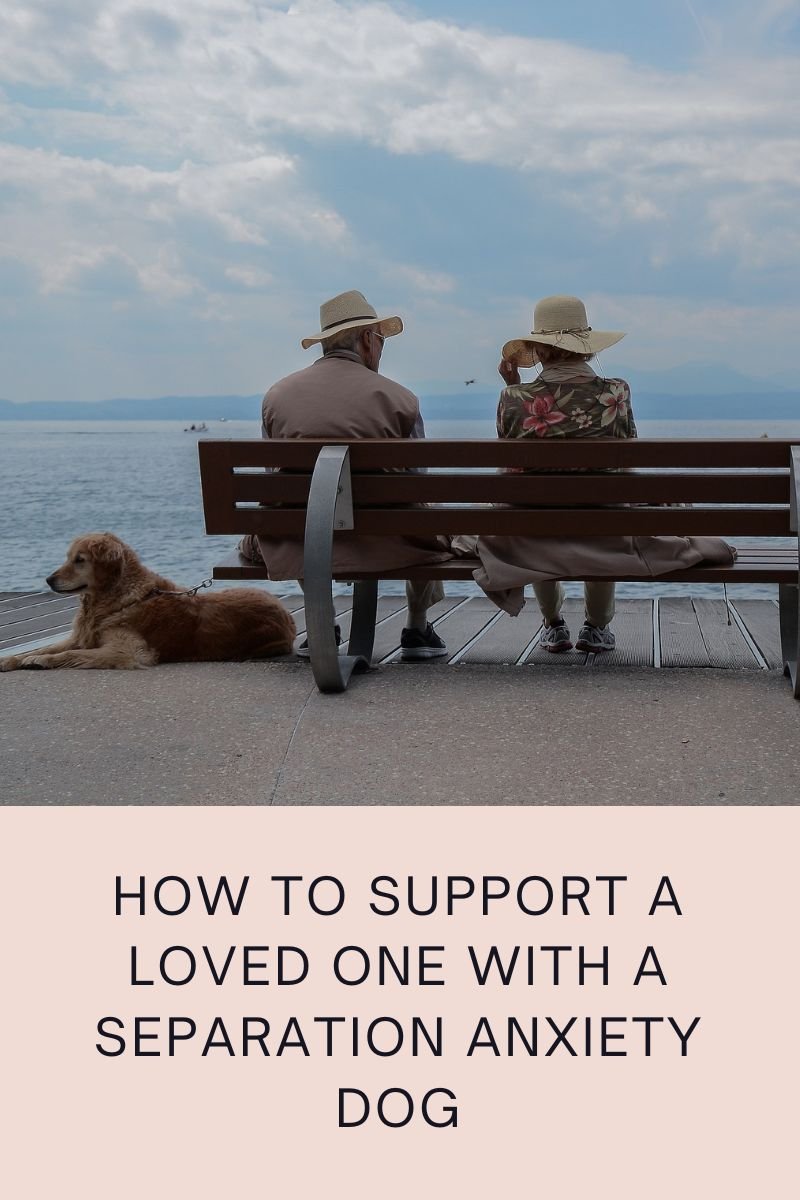How To Support a Loved One With a Separation Anxiety Dog
People who have a dog with separation anxiety are so often isolated and missing connection due to the complexity of this behaviour concern. Not only are they feeling isolated but their friends and family often don’t understand what they are going through and struggle to empathize. It is hard to grasp the true decrease in quality of life it can cause unless you're in it. Here are some ways you can support someone you love who lives with a separation anxiety dog and begin to understand what life is like for them.
First, I want to give some information on what separation anxiety is. Separation anxiety is a panic disorder, to be diagnosed by a veterinarian. It is not a silly term that is thrown around. It is a debilitating fear of being left alone that can present with vocalization, destruction or elimination (among other things, these are the most common). A dog who has separation anxiety is in true panic and distress when left alone.
This is not the same thing as your puppy who cried for a few minutes the first few times you left him home alone, but then got used to it. This is not something that will be solved by leaving them with a kong stuffed with peanut butter. This is not the same as your dog who follows you around the house but goes to sleep comfortably when home alone. This is not a dog that will cry it out and eventually learn it’s no big deal and go to sleep. If someone says they have a dog with separation anxiety, take them seriously, it is not an easy behaviour concern to be faced with.
A dog with separation anxiety cannot be left alone AT ALL, no ands ifs or buts. They need to be with someone at all times in order to avoid practicing panic while alone. This is very difficult to grasp for people who do not have a dog with separation anxiety but trust us, it’s required. We are often working on desensitizing a dog to a couple seconds of comfortable alone time. So being left for 20 minutes panicking will completely toss out all of our work. Our goal is to teach a dog in small increments through desensitization alone time is safe.
When working on separation anxiety training a client is doing training 5 days a week. Not only are they committing all this time to training their dog but the management portion is extremely challenging. They have to plan and map every moment of their day and how to be sure their dog will never be left alone in order for all that training to work. If they want to go grocery shopping or pick up a prescription they have to find someone to sit their dog or get them to daycare. Many dogs aren’t suitable for daycare and most sitters need to be planned out in advance. It is no small feat for them to manage never leaving their dog alone.
To be a good support of your loved one working through this, listen to their concerns and what they are going through without judgment. Let them vent, let them explain what they are doing to work on it and how. Do not respond with judgment, they are opening up to you about this challenge, meet them with kindness. Provide them with empathy and compassion. Saying things like “that is really hard, how can I support you?” is a wonderful way to show your loved one you care and want to help.
Do not tell them it is their fault, because it's not. Loving and cuddling a dog too much does not cause separation anxiety. Letting a dog sleep in the bed does not cause separation anxiety. Suggesting what worked for your dog, who does not have separation anxiety, or finding them advice from the internet is not helpful. Show them compassion as you would with a human friend struggling with mental health concerns. Help point them in the right direction for help and provide empathy.
Help find solutions to suspend absences or make plans where their dog can come along. Offer to pet sit or suggest anyone you may know who could help them with absence coverage. Be open to dog friendly activities. Having a dog with separation anxiety can be extremely isolating, your loved one really needs you right now.
To help them find a professional to support them, point your loved one to a Certified Separation Anxiety Trainer (CSAT) or their veterinarian for help. Separation anxiety is a very niche concern and is treated much differently than many behaviour concerns so it is important to be working with a specialist.
If you’ve made it this far, thank you for caring enough about your loved one to learn how you can support them and taking a glimpse into their reality. They will appreciate it more than you can know.


